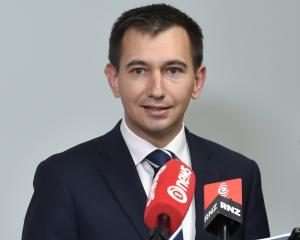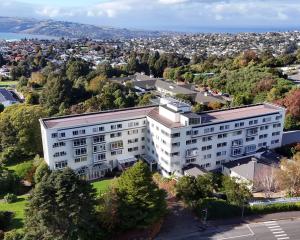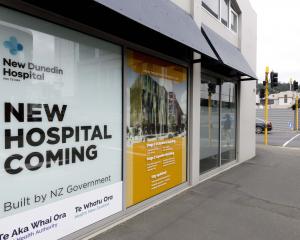Government plans to boost the health workforce have brassed off the nurses’ union, which believes the reforms announced yesterday by Health Minister Andrew Little prioritise doctors.
New Zealand Nurses Organisation president Anne Daniels, a Dunedin emergency department nurse, said any attempt to ease the severe pressure on the health workforce was welcome, but she questioned why the package being offered to recruit new doctors was often better than that being offered to nurses.
"Once again nursing has been treated in a discriminatory way," she said.
"An international doctor will have their costs covered during their six-week clinical induction course and three-month training internship but there is no such offer for nurses, either for international nurses or for New Zealand-trained nurses coming back to the profession and I need to ask the question, ‘Why not?’."
Recruitment was one thing, but Health New Zealand also needed to improve pay and working conditions so that newly trained nurses or recent overseas hired nurses wanted to stay in this country, she said.
"For example, the pay equity claim needs to be resolved ... we need to support more people from this country, particularly Maori and Pasifika, into nursing and then to stay in nursing," Ms Daniels said.
She was also scathing of a plan to interweave the new recruitment drive into the plot line for TV drama Shortland Street.
"I am already fielding texts from members asking ‘Is this for real?’," she said.
"Unfortunately, as much as some people might like Shortland Street, it really does not reflect the true realities of what we face every day when we go to work.
"Everybody is suffering out there, it’s not romantic."
Mr Little defended the Government’s record in health, citing record funding for both capital and operational expenditure and noting that 1765 more doctors and 4277 more nurses were working for Health New Zealand than when Labour took over the reins of government in 2017.
However, he conceded hospitals and GP clinics were under strain due the effects of short staffing, Covid-19 and influenza.
"Today’s package of measures removes actual cost barriers to migrants entering the health workforce while also ensuring we are training enough people locally in the long-term," he said.
"Our changes to the health system only came into force a month ago, creating a single national health service, and that means we can now have a single point of co-ordination and put some real heft into a national campaign to address the decades-old workforce shortage and ease pressure on the health system."
Mr Little also announced a multimedia domestic recruitment campaign called Real Nurses had been set up in association with the NZNO.
Ms Daniels said the campaign had been devised for and funded by the union in 2018, and was the subject of a presentation to Mr Little in early 2021.
She was surprised but pleased it was in the spotlight once more.
"It really does show that we are real people and shows the job in a real light, that we are not just someone in a uniform."
What’s on offer?
To boost the health workforce:
- Funding of up to $10,000 for each overseas nurse to gain NZ registration.
- Funding for migrant doctors to cover a six-month bridging programme, including paying salaries during clinical induction course and training internships.
- A one-stop international recruitment service within Te Whatu Ora-Health New Zealand to help health workers migrate here.
- Increase the number of GPs trained each year to 300, double the number of nurse practitioners trained each year, from 50 to 100.
- Funding to increase training slots for radiology registrars, to 15 more in three years.












